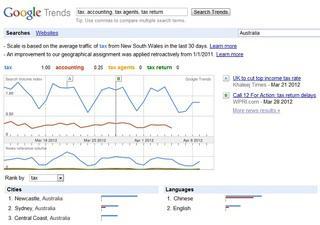 We’ve all heard it before – ‘Content is King”. It’s a catchy phrase, and it makes sense at a basic level, but how do you actually write content that your audience wants to read or – even better -wants to share and recommend? Let’s say that you run a small business and you’re just getting started online. You have a good idea of your target market demographics, and you’re running a low-budget SEM campaign targeting a handful of keywords. You have a simple website with a blog and you want to attract targeted traffic, but you’re stuck for ideas about what to write. That’s where the following tools and techniques are really going to come in handy.
We’ve all heard it before – ‘Content is King”. It’s a catchy phrase, and it makes sense at a basic level, but how do you actually write content that your audience wants to read or – even better -wants to share and recommend? Let’s say that you run a small business and you’re just getting started online. You have a good idea of your target market demographics, and you’re running a low-budget SEM campaign targeting a handful of keywords. You have a simple website with a blog and you want to attract targeted traffic, but you’re stuck for ideas about what to write. That’s where the following tools and techniques are really going to come in handy.
Online Tools of the Trade
To come up with some content ideas we’re going to use 4 free tools from Google that will provide insights into what your audience is looking for, which topics are popular on the net right now and find key stories that relate to your industry. These tools are Google Keyword Tool, Google Trends, Insights for Search and Google Alerts. If you have a Google account that’s great as you can save settings and options, but it doesn’t matter if you don’t; these tools are completely open for anyone to use.
Techniques for Generating Content Ideas
First we’re going to run through how to use Google Keyword Tool to come up with article titles and themes. Starting with a Melbourne-based accounting business example, let’s type in a few terms that relate to the business, such as “tax accountants Melbourne”, “tax agents Melbourne” and “Melbourne accounting firms”.
Select your country and language, use ‘Exact’ for the match-type to ensure you get accurate data and hit search. Here’s where it gets exciting – Google will bring up a list of related search terms along with the amount of competition (based on paid online marketing AdWords) and the number of Local Monthly Searches for those phrases. Go through the list and you’ll see that around 500 people per month are searching for medium-competition terms such as “tax returns Melbourne”, “business tax return” and “accounting for small business”. Perfect – this is exactly what we’re looking for.
We now know that people in our local region are searching for these exact phrases, and the competition level is medium so we should be able to get an article to rank for these terms. By following the best practice for crafting attractive copy-writing we can turn those keywords into killer titles like “Time-Saving Tips for Your Business Tax Return” and “7 Things You Should Know About Small Business Accounting”. You have the expertise in your niche, and now you also have content that you know your customers want to read.
Follow the Trends
The next tool we’ll look at is Google Trends. It’s a simple app that shows you the top terms being searched for with Google. You can also delve deeper by typing in words and phrases to see how that term has grown or diminished in popularity over a given length of time. Trends will provide you with a list of the Top 20 ‘hot’ search terms right now, and with that knowledge you can craft titles that play off those trends or even just use phrases and examples from trending stories to increase the relevance of your content.
You can even meld a trending term (e.g. The Hunger Games) with your niche keywords to come up with an attractive title like “Why Business Accounting is Like The Hunger Games” or “How Surviving The Hunger Games is Easier Than a Tax Return”. With a little creativity and sound knowledge of your niche, whether it’s accounting, onlinefood delivery or computer repairs you’ll be able to turn these titles into rich content that is just begging to be shared across the web.
Gaining Insights
The next step up from Trends is Google ‘Insights for Search’, which is similar to Trends but with more advanced filtering options. With Insights you can search for Terms, Date Ranges or Locations and see which search terms are currently popular. With the added options of being able to sort the results by industry and type of search (such as Images, News and Product search), you can really drill down into what a particular audience is interested in right now.
For example, I plugged in the terms “tax, accounting, tax agents, tax return” into Insights for Search, set the location to NSW, Australia and gave it a date range of 30 days. Immediately I can see that people search for these (and related) terms on a tight weekly cycle – Monday, Tuesday and Wednesday, with the interest dying off towards the weekend. That immediately tells me that I should be promoting my killer new accounting articles on these days via Facebook and Twitter (you are using Facebook for your small business aren’t you?)
Be Alert, Not Alarmed
The final free online tool for helping you to write content that your audience wants to read is Google Alerts. This deceptively simple tool provides some amazing results by emailing you updates whenever articles and stories containing your chosen keywords are published around the net. You can filter out some noise by defining particular sources (such as Blogs, Discussions or Videos), and you can also ask Google to intelligently cull the less relevant results. By selecting keywords related to your small business you’ll soon be alerted whenever people are discussing topics related to your area of expertise, which enables you to engage with these communities, or use the topics that pop-up as new article ideas.
By adding these free tools and techniques to your toolbox you can really flesh out a cheap marketing plan that provides attractive, high-value content to your audience – and in return you’ll soon see them converting into valuable customers.
Do you have any other techniques or tools that you use to write content your small business audience wants to read? Share it with us in the comments section, we’d love to hear from you!

Article by Jacob E. Dawson from Delivery Hero – Heroic Home Delivery. Jacob is a blogger, entrepreneur, online-marketing ninja and enthusiastic traveler with a passion for getting the most out of each and every day!

